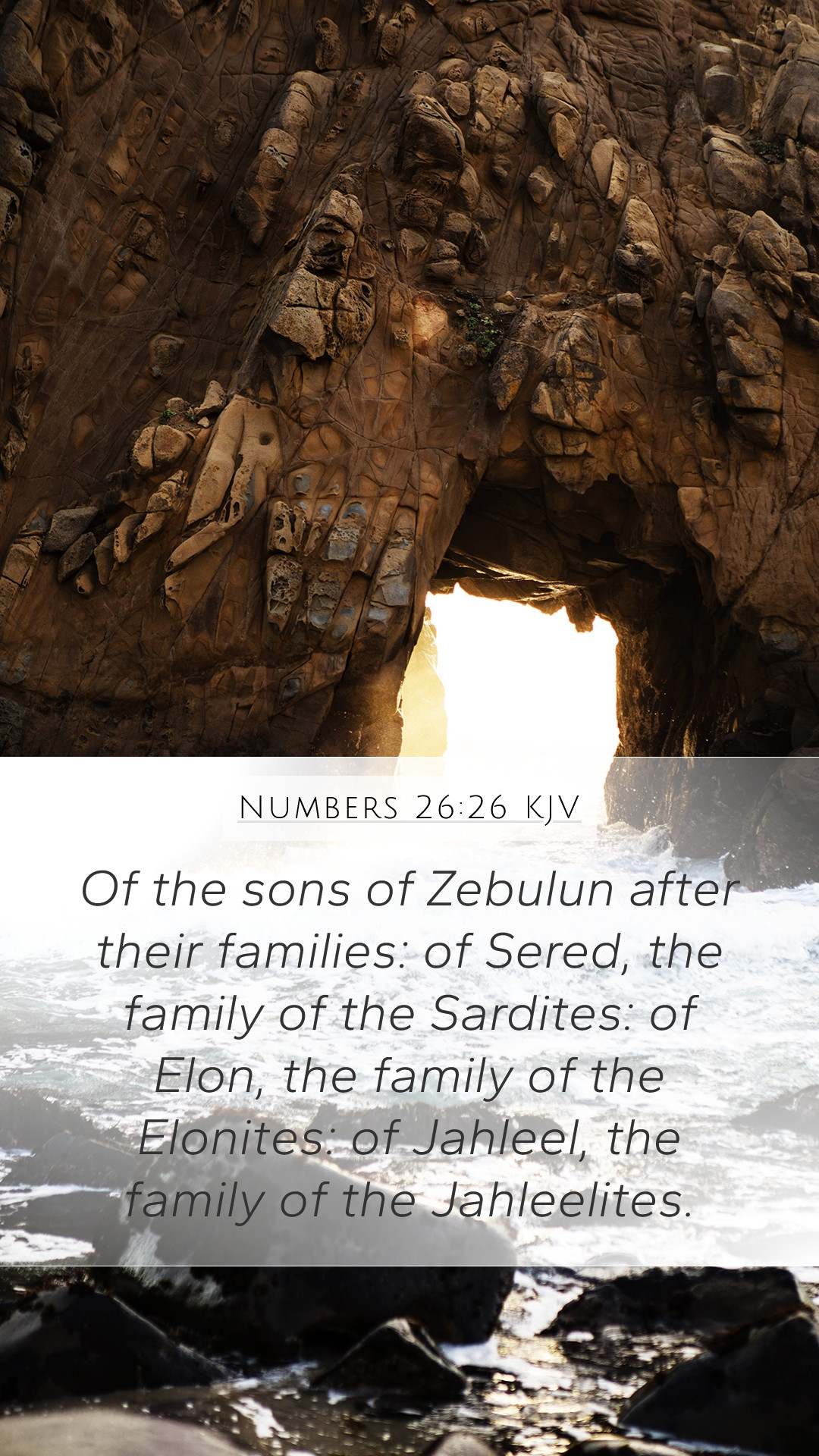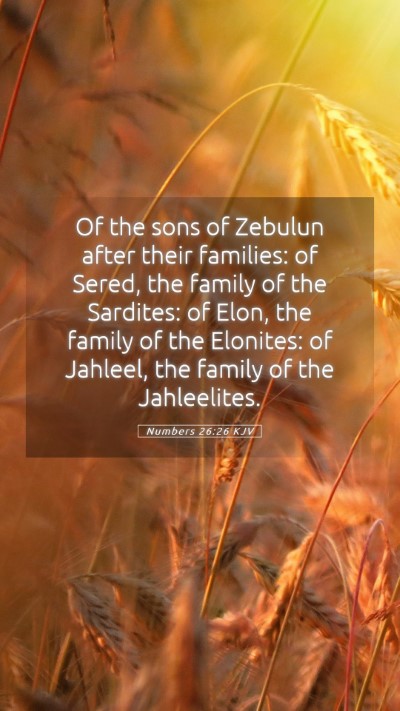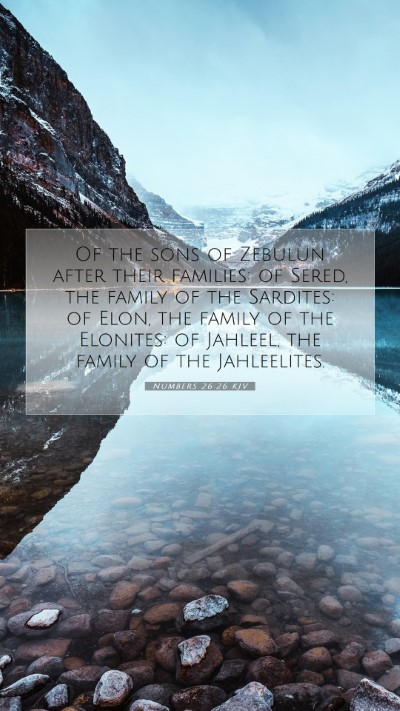Understanding Numbers 26:26
Numbers 26:26 states: “These are the children of Zebulun after their families: of Sered, the family of the Seredites: of Elon, the family of the Elonites: of Jahleel, the family of the Jahleelites.” This verse is part of the census taken by Moses in the wilderness, focusing on the descendants of the tribe of Zebulun. Below we will explore the verse's significance through Bible verse meanings, interpretations, and explanations as outlined by various public domain commentators.
Bible Verse Meanings
This verse serves to identify the families within the tribe of Zebulun, contributing to the broader narrative of Israel's organization and heritage. Within the scope of Bible verse interpretations, commentators emphasize the importance of genealogy in Scripture. Genealogies serve not just as a historical record but also highlight God’s faithfulness in preserving His people.
Biblical Context
The book of Numbers is a record of Israel's journey through the wilderness, organized into a census of the tribes. It is essentially about preparation—preparing to enter the Promised Land. Numbers 26:26 specifically is significant in the context of God’s covenant with the Israelites, indicating that even in their wilderness years, God was sustaining and growing His people.
Commentary Insights
-
Matthew Henry:
Henry emphasizes that genealogies are substantial as they show God’s promise to Israel has been fulfilled through successive generations. The mention of families signifies the importance of familial relationships and community in Hebrew culture.
-
Albert Barnes:
Barnes points to the organizing principle behind the census. Each family listed holds individual and collective significance reflecting unity and identity among the Israelites, reinforcing their need for one another in their journey.
-
Adam Clarke:
Clarke notes that Zebulun, as a tribe, was prophetically assigned significant functions in Israel’s future, particularly in the context of land distribution and military service. This reinforces the idea that every tribe had a role, manifesting the diversity and unity within God’s people.
Application of Biblical Insights
By understanding the contexts and meanings of this verse, one gains a greater appreciation for the role of unity in the Body of Christ, akin to how the families of Zebulun worked together. This verse can apply to daily life by reminding us of the importance of recognizing our heritage, community roles, and God's continued faithfulness.
Applications in Bible Study
Numbers 26:26 can enrich Bible study groups and online Bible study sessions as it shapes discussions around genealogical significance and God’s providence. The verse is an excellent topic for Bible study lessons that encourage participants to explore the Biblical concept of community.
Cross References
- Genesis 49:13 - Prophecy regarding Zebulun.
- Deuteronomy 33:18-19 - Moses' blessing of Zebulun.
- Joshua 19:10-16 - The distribution of land for Zebulun.
Conclusion
Through an in-depth Bible verse analysis of Numbers 26:26, we uncover a tapestry of meanings rooted in historical context and the character of God as a covenant-keeping entity. This verse serves as a reminder of the heritage of faith we are part of and the roles we each play in the broader narrative of Scripture. Understanding these elements enhances our Bible study insights and understanding Scripture as we seek to interpret and apply Bible verses more effectively.


